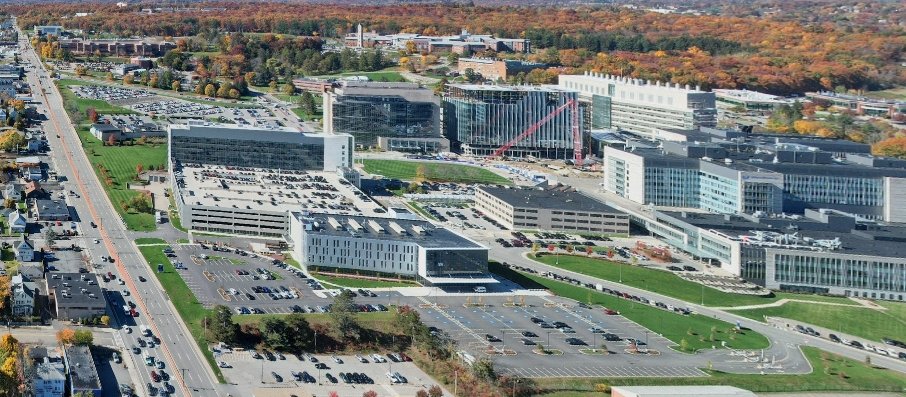“Jeff entered a very challenging workplace dynamic at our brewery project. The primary business had just been sold and the remaining employees represented a mere fraction of the original workforce. We needed professional guidance on the best tactics to communicate better with each other now that the company was a small start-up.”
The 472 Brewery Project, Keene, NH
Call Jeff Saari at 603-762-4866 for a free consult.
Leadership Coaching for Worcester, MA area non-profits and businesses
We are helping leaders in Worcester, MA improve their management style, become better at prioritizing, reduce stress, and become more overall emotionally intelligent.
Jeff Saari, CEO of Workplace Culture Solutions and Visionary Coaching LLC, founded his company in 2007. His enthusiastic passion and life purpose is to support leadership and cultural excellence in businesses and organizations. He works with leaders to achieve a maximum level of emotional intelligence to share with their organizations. Jeff teaches communication and meeting facilitation skills, practices one-on-one and group coaching, and leads organizational retreats.
We work to improve your personal management skills on a long-term basis!
We specialize in improving the following:
employee performance and commitment,
communication,
being on purpose,
collaboration,
role clarity,
getting the right things done,
self-mastery, and
dealing with fear and frustration.
Please call Jeff saari at 603-762-4866 with any questions about his coaching.
Contact us if you are interested in a few consult.
“My mission is to help create healthy leaders, healthy teams, and healthy businesses through coaching engagements.”
Workplace Culture Solutions
Jeff Saari, Leadership Coach / Owner
Keeping yourself calm at work
In the interface between having an adverse feeling from a non-ideal stimulus and taking a non-supportive action, can be a pause, what I call a calming tactic. This is an action you will take to calm down your trigger first, before rolling your eyes at your coworker. Taking a couple of deep breaths, taking a pause or break, taking a walk to the water cooler, saying a catchphrase in your head, etc., are ways to keep you more calm and collected. Think about something that would fit for you to calm yourself down and employ it immediately. By doing this there will be a little wiggle room to think rationally about the situation and take an action that will actually support your desired result. What is your desired result? Your triggers are actually messages in a bottle for you to take out and read. They can shed a light on how a less-than-ideal situation would look if it was to your liking. Once you understand what you are doing in reaction to a stimulus, you can ask yourself what result you really want in the future. Is it for your coworker to stop complaining around you? Instead of the actions that don’t support your desired result (tuning out, avoiding, eye rolling), one inspired action you could take is to give the person feedback about his behavior.
For more information check out Take Control of Your Triggers, by Jeff Saari.
RESOURCES FOR BUSINESSES IN the Worcester, MA area:
Medium-sized companies in the Worcester, MA area have access to a variety of important business resources essential for their growth and success.
The Worcester Regional Chamber of Commerce plays a pivotal role in connecting businesses to networking opportunities, government resources, and advocacy programs that can help navigate local regulations.
Additionally, the Massachusetts Small Business Development Center Network provides valuable guidance on business planning, market research, and financial analysis to support strategic decision-making.
In Worcester, the availability of skilled workforce through local universities such as Worcester Polytechnic Institute and Clark University further enhances the region's appeal for businesses looking to expand. With a robust ecosystem of support services and talent pool, medium-sized companies in the Worcester area are well-positioned to thrive and achieve their business goals.
Business History and Background of Worcester, MA Area in the Last 20 Years
Worcester, Massachusetts, a city with a rich industrial history, has seen significant developments in the business landscape over the past two decades. Known as the "Heart of the Commonwealth," Worcester has experienced a transformation driven by a diverse range of industries and initiatives.
Early 2000s:
In the early 2000s, Worcester focused on revitalizing its downtown area, attracting businesses, and fostering a vibrant cultural scene. Key sectors such as healthcare, manufacturing, education, and biotechnology began to flourish, laying the foundation for future growth.
Mid to Late 2000s:
During the mid to late 2000s, Worcester's economy continued to evolve, with the emergence of new technology startups and a growing emphasis on innovation. The city established itself as a hub for healthcare and biotech companies, leveraging resources from institutions like UMass Medical School and Worcester Polytechnic Institute.
2010s:
The 2010s marked a period of expansion and diversification for Worcester's business community. Major corporations and small businesses alike contributed to the city's economic prosperity. The development of biomanufacturing facilities, research centers, and business incubators underscored Worcester's commitment to fostering entrepreneurship and cutting-edge industries.
Recent Years:
In recent years, Worcester has further solidified its position as a regional economic powerhouse. The city's strategic location, skilled workforce, and pro-business policies have attracted investments from a wide range of sectors, including advanced manufacturing, healthcare services, and information technology.
Looking Ahead:
As Worcester looks to the future, key priorities include sustainable growth, infrastructure enhancements, and talent development. The city's business community is poised to capitalize on emerging trends such as green technology, digital innovation, and advanced manufacturing, shaping Worcester's economy for years to come.
Overall, Worcester's business history in the last 20 years reflects a trajectory of resilience, adaptability, and innovation. With a diverse economic base and a supportive ecosystem for entrepreneurship, Worcester continues to be a dynamic center of commerce in the New England region.
Leading Through Change: Strategies for Small Business CEOs
Change is inevitable in the business world, and small business CEOs often face unique challenges when navigating through it. Whether it's adapting to new technologies, responding to market shifts, or dealing with economic disruptions, leading through change requires a strategic approach. Here are some essential strategies for small business CEOs to lead their teams effectively during times of change.
Embrace a Growth Mindset
The foundation of leading through change is adopting a growth mindset. View change as an opportunity for growth and innovation rather than a threat. Encourage your team to embrace challenges as chances to learn and improve. This positive perspective can foster a culture of resilience and adaptability, essential for thriving in a changing environment.
Communicate Transparently
Transparent communication is crucial during times of change. Keep your team informed about what’s happening, why it’s happening, and how it will affect them. Regular updates and open forums for discussion can alleviate fears and build trust. When employees feel informed and included, they are more likely to support and engage with the changes.
Involve Your Team in the Process
Engage your team by seeking their input and involving them in decision-making. This not only fosters a sense of ownership and accountability but also brings diverse perspectives and ideas to the table. Leveraging your team's collective knowledge and experience can lead to more effective strategies and solutions.
Provide Support and Resources
Change can be unsettling, and employees may need additional support to adapt. Offer training and resources to help your team develop the necessary skills to thrive in the new environment. Coaching and mentorship programs can provide guidance during the transition, building a more capable and confident workforce.
Lead by Example
As a CEO, your actions set the tone for your organization. Demonstrate your commitment to change by leading by example. Show your team that you are willing to adapt and grow alongside them. Your willingness to embrace change will inspire and motivate your team to do the same.
Set Clear Goals and Expectations
During times of change, it’s important to provide clear direction and set realistic goals. Define what success looks like and communicate your expectations to your team. Establishing measurable objectives can keep everyone focused and aligned, providing a sense of purpose and direction amidst uncertainty.
Celebrate Small Wins
Acknowledge and celebrate small victories along the way. Recognizing progress, no matter how small, can boost morale and keep your team motivated. Celebrating achievements reinforces the idea that changes are leading to positive outcomes and encourages continued effort and commitment.
Be Flexible and Adaptable
Finally, be prepared to adjust your strategies as needed. Change is rarely a linear process, and unforeseen challenges may arise. Stay flexible and open to modifying your approach based on feedback and evolving circumstances. By remaining agile, you can navigate through change more effectively and position your business for long-term success.
For personalized leadership coaching to help you navigate change in your business, contact Jeff Saari at Workplace Culture Solutions. We are serving businesses, schools, and non-profits in the following areas:
Worcester, MA
Boston, MA
Providence, RI
Reach out today to discuss your organization’s needs and discover how effective leadership can drive success in times of change.



